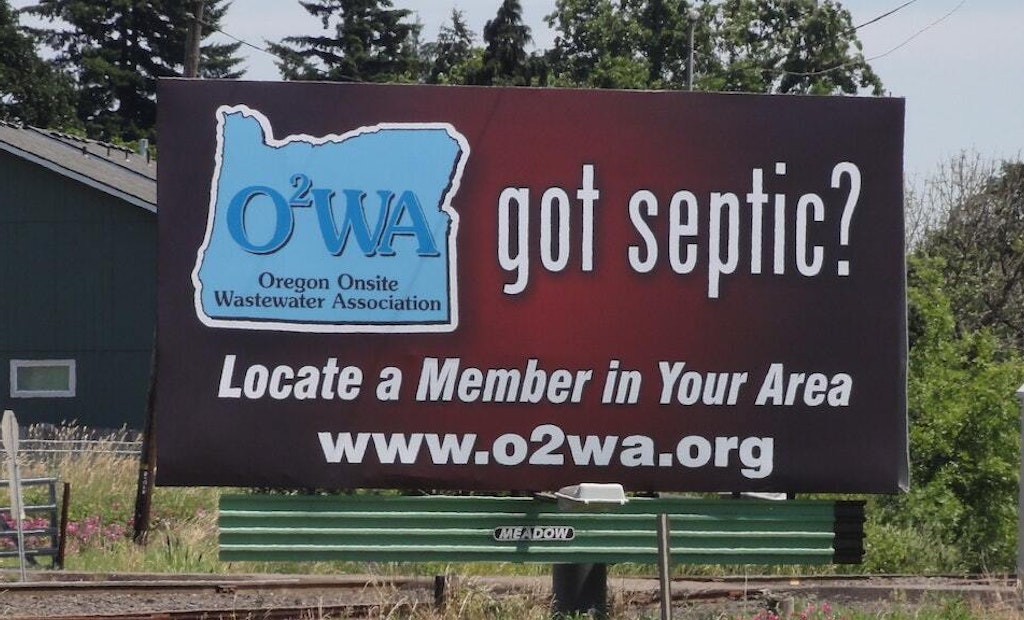Interested in Onsite Systems?
Get Onsite Systems articles, news and videos right in your inbox! Sign up now.
Onsite Systems + Get AlertsEducation. Legislative advocacy. Group discounts. All benefits of belonging to a state onsite/wastewater association, but that’s just a start.
Membership in onsite organizations keeps you connected to a community of professionals and serves as a forum for the exchange of ideas and information among private industry professionals, government policymakers and regulators.
Here 12 members of various state associations share why they joined and how they benefit from membership.
It’s great for the knowledge you receive from the installers, engineers, soil scientists and all the people in the industry. You really learn a lot from them. The organization does a lot for its members — we have an annual convention, and we also have a golf outing, a clay shoot, a crab feast.
- Jason Guarino, Jason Guarino Excavating and Septic Services, Millsboro, Delaware
It enables me to stay current with regulations and trends. And you stay connected with people. When we meet in person, it is interactive and you’d get ideas. People tell you things they are doing differently.
- Larry Maznek, Maznek Septic Service, Bedford, New Hampshire
O2WA provides a forum for research, the exchange of ideas, information and technology, training and certification, and collaboration for the highest possible standard of safe, sanitary and environmentally sound onsite wastewater services in Oregon.
- Chris Rhodaback, A&B Septic Service, Albany, Oregon
It helps us stay on top of the laws that could be changing. A lot of lobbying goes on. It’s a big help. Not that you can get a jump on anything but a lot of times you can lobby against some things. In Hot Springs, they were going to raise our dump rates to a nickel a gallon. I was going to turn it over to the board and let them negotiate with the city about that, but then the regulators worked with me one-on-one and we got a deal where they raised it two-and-a-half cents the first year and two-and-a-half cents the second year. The city actually didn’t want to deal with the board. But it was definitely a benefit being on the board and being able to mention the board.
- Darius E. Melton, 2M Pumping Service, Hot Springs, Arkansas
Membership in OWPI allows us to provide input on code changes, stay in touch with current regulations, and meet great people in the industry.
- Rick Maguire, Maguire Wastewater Solutions, Virden, Illinois
First and foremost are the relationships developed with the members, the board and the Oklahoma Department of Environmental Quality staff. We have been able to make strides in getting rules changed for the better. For example, when a law was changed to increase the number of sprinkler heads required for (irrigating with effluent from) aerobic systems in eastern Oklahoma, we helped get that reversed. It was very hard to fit more sprinkler heads onto small lots with big houses, and we could find no science to back up that requirement.
- Jason Birdsong, JT Septic Co., Claremore, Oklahoma
I enjoy being able to participate in building a bridge with others in the industry. But, most of all, it’s having a voice that’s heard. Being on the board carries weight working with the Georgia Department of Public Health. If we have to function under the regulations placed on us, it’s nice to know that our experience in the field is taken into consideration. And we have somebody sitting at the state level in the legislature looking for things that could be coming our way.
- Dwayne Crocker, Crocker Septic Tank Service, Kathleen, Georgia
We learn new things and stay informed about regulation changes. It provides education opportunities and helps to make the industry more professional.
- Valentino Garcia, Garcia Excavation Services, Fredericksburg, Virginia
Contact with people in the industry statewide and the education and training that are offered are substantial benefits. There’s an annual conference in Columbus. Networking is huge. If you’re not going to the meetings and classes, you’re missing out.
- Walter Clay Kucharski, Walt Kucharski Septic Service, Inc, Richfield, Ohio
Training and education are key benefits. It also brings together all the different branches of the wastewater industry — pumpers, installers, regulators — to share ideas and have a voice in the formation of policies and regulations. And what really sparks my interest is they’re getting ready to build a training facility where they’re going to have all the different treatment technologies and disposal systems (drips, mounds, pressure dose systems) on site and working. I’d like to see it opened up to the general public as well, to educate them because people don’t want to get away from the old-time technology.
- Mike Sample, Sample Excavating, Glen Arm, Maryland
It helps keep you up to date with the new rules, regulations and technology. It keeps you in the loop with the manufacturers and what’s available as far as products and materials. There’s also the training and educational seminars. It provides you with a lot of information.
- Mike Lile, Reed’s Plumbing and Excavating, Springfield, Missouri
For the county regulators, the CPOW membership, classes and certificate ensure that installers are being taught installation standards from the same organization and have a vested interest in quality installations. And I personally like to hear what new materials and supplies are coming down the pipeline.
- Clint Britt, The Britt Company, dba TBC Septic, Elizabeth, Colorado






